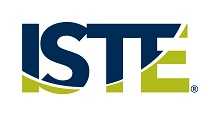Key points:
- ChatGPT isn’t a tool to be feared–it can contribute greatly to STEM learning
- AI tools aren’t going away, and harnessing their capabilities is important
“If we teach today as we taught yesterday, we rob our children of tomorrow.” – John Dewey
Back in 2007 when I was teaching Algebra I at the local middle school, the biggest question for mathematics teachers on our campus was whether students could use their calculators while doing classwork and on standardized tests. A few years later, the discussion changed to an argument about the pros and cons of using a Desmos calculator on their classroom iPads. Using Desmos was seen as being particularly egregious, as educators feared that students may have access to the internet and may surf the web while they should be learning or during summative assessments. …Read More

 Ed. note: This year the editors selected ten stories we believe either highlighted an important issue in 2015 and/or signaled the beginning of an escalating trend or issue for 2016 (look for No. 1 on Dec. 31).
Ed. note: This year the editors selected ten stories we believe either highlighted an important issue in 2015 and/or signaled the beginning of an escalating trend or issue for 2016 (look for No. 1 on Dec. 31). 